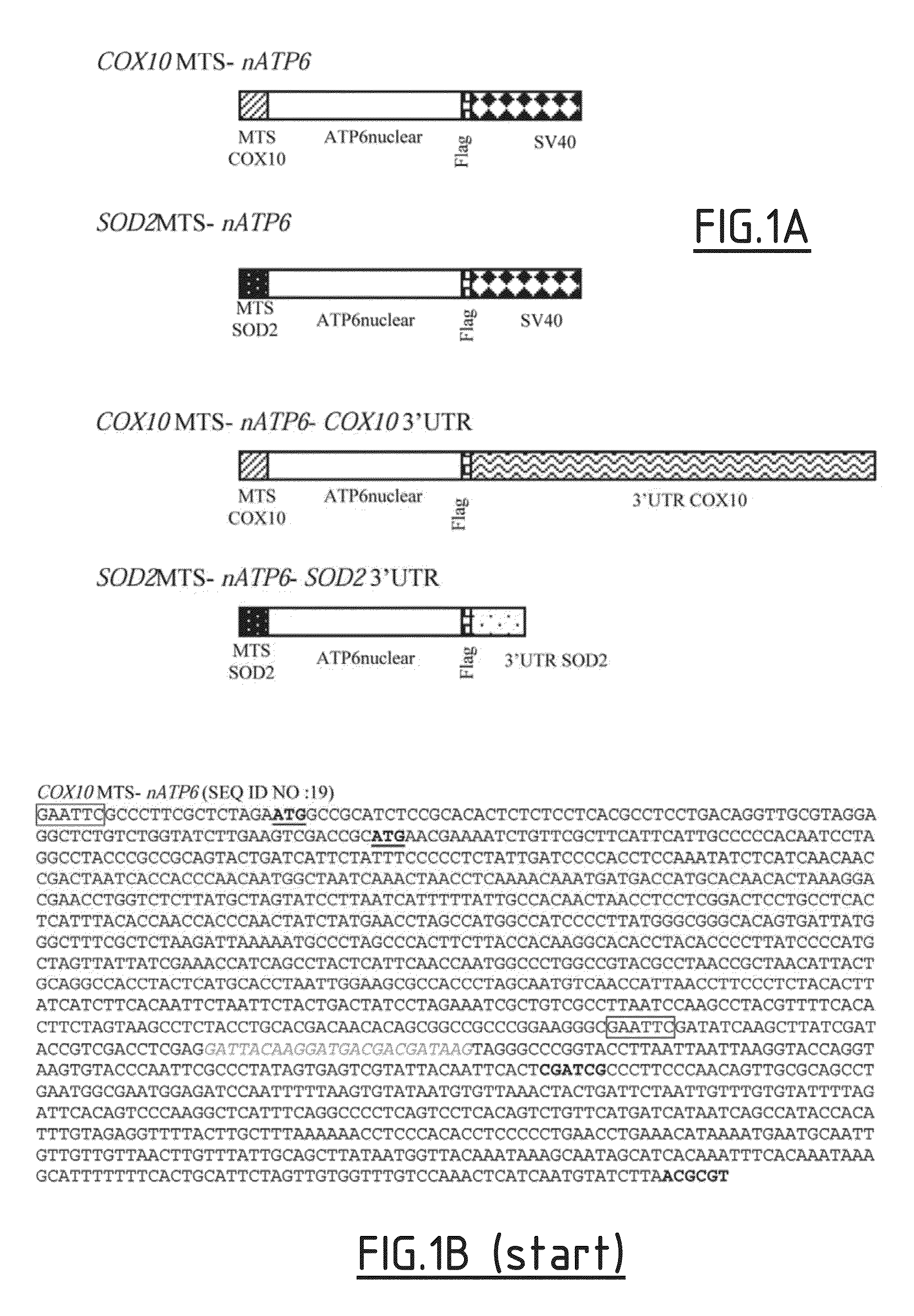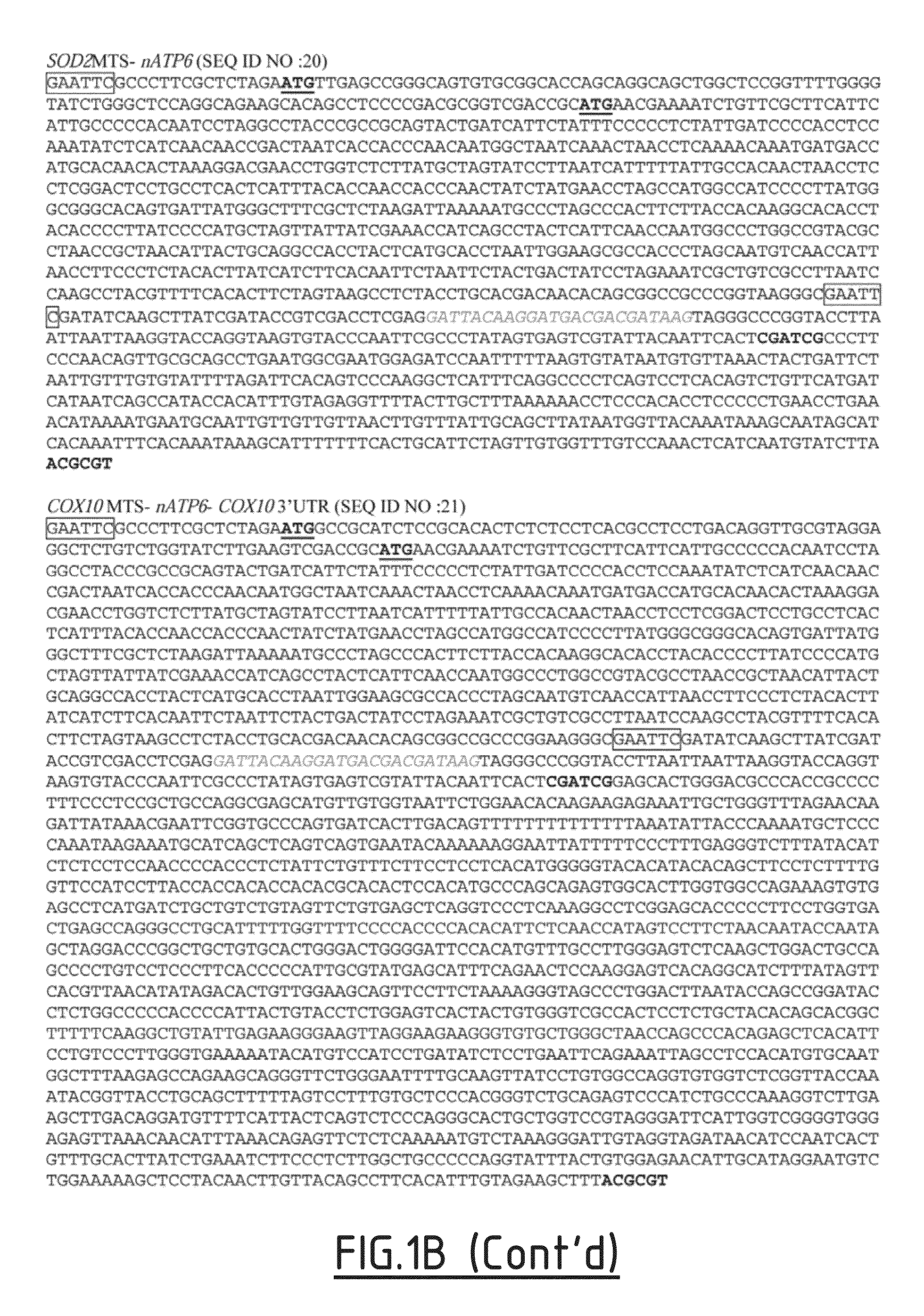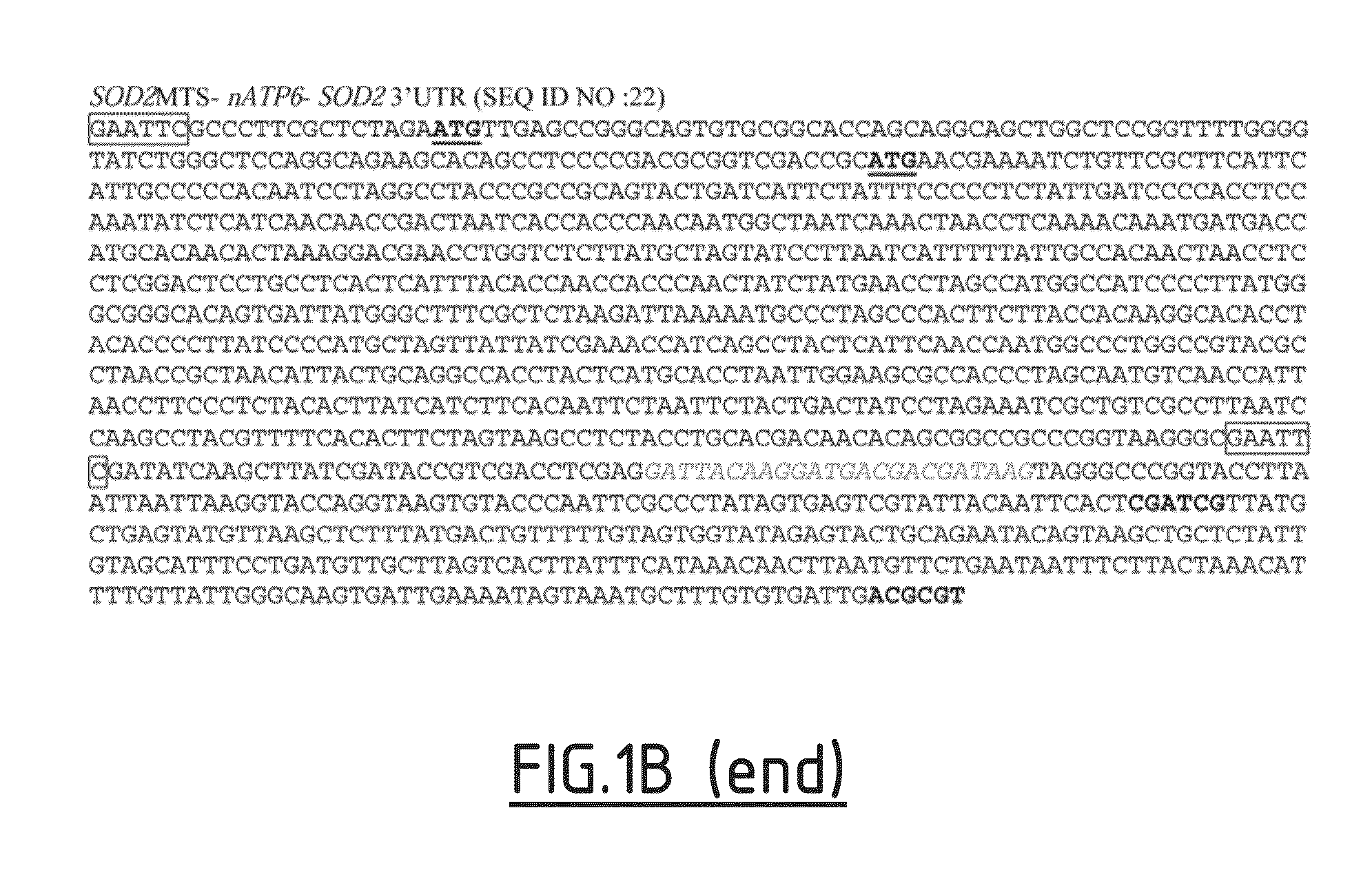Importation of mitochodrial protein by an enhanced allotopic approach
an allotopic approach and mitochondrial technology, applied in the field of cell biology, molecular genetics, medicine, can solve the problems of requiring optimization, affecting the efficiency of allotopic expression as a therapeutic approach, and affecting the pathology of mitochondrial cells, so as to achieve efficient and stable importation of proteins, enhance allotopic approach, and enhance efficiency and stability
- Summary
- Abstract
- Description
- Claims
- Application Information
AI Technical Summary
Benefits of technology
Problems solved by technology
Method used
Image
Examples
example 1
Allotopic Expression of the ATP6 Mitochondrial Gene is Significantly Improved by the Localization of its mRNAs to the Surface of Mitochondria Leading to an Efficient Import of the Precursor
[0307]Abstract:
[0308]It is clear that impairment of mitochondrial energy metabolism is the key pathogenic factor in a growing number of neurodegenerative disorders. With the discovery of mtDNA mutations, the replacement of defective genes became an important goal for mitochondrial geneticists worldwide. Unfortunately, before the present invention, it was still not possible to introduce foreign genes into the mitochondria of mammalian cells.
[0309]To circumvent this problem, allotopic expression in the nucleus of genes encoded by mitochondrial DNA (mtDNA), became an attractive idea. However, for most mitochondrial genes tested, there were important limitations related to the high hydrophobicity of the corresponding proteins, which impedes their mitochondrial translocation.
[0310]We herein elucidate t...
example 2
Correct Mitochondrial Localization of the Recoded Mitochondrial ND1 and ND4 Genes in Fibroblasts from LHON Patients
[0366]The three most common pathogenic mutations from LHON affect complex I ND1, ND4 and ND6 genes with the double effect of lowering ATP synthesis and increasing oxidative stress chronically.
[0367]Since we have demonstrated that reengineered mitochondrial Atp6 proteins were successfully translocated inside the mitochondria in HeLa cells (see example 1 above), we decided to synthesize recoded mitochondrial genes ND1 and ND4. To ensure the efficient import of the allotopically expressed proteins we appended to them signals which will direct the corresponding mRNAs to the mitochondrial surface. We have chosen to use the MTS of COX10 gene alone or in combination with its entire 3′UTR. FIGS. 5A and 5B illustrate the constructs obtained and the full-length sequences inserted in the pCMV-Tag 4A vector.
[0368]Material and Methods:
[0369]Cell Culture and Transfection:
[0370]Fibrob...
example 3
Rescue of Mitochondrial Deficiency Causing Human Diseases (Transfection of Fibroblasts from a NARP Patient)
[0384]We also determined whether the reengineered ATP6 protein would be able to rescue mitochondrial deficiency in cells having a mutated ATP6 gene.
[0385]We obtained fibroblasts from a patient presenting NARP disease caused by the T8993G mutation in the ATP6 gene.
[0386]Fibroblasts were cultured on media containing sodium pyruvate and relatively high amounts of FBS, more particularly:[0387]on a medium containing glucose (D-MEM with L-glutamine, 4500 mg / L D-glucose, 110 mg / L sodium pyruvate 2.5 mM, FBS 15%, uridine 28 microM), or[0388]on a medium, which does not contain glucose, but contain galactose (liquid D-MEM (1×), with L-Glutamine without Glucose, sodium pyruvate 2.5 mM, galactose 10 mM, FBS 15%, uridine 28 microM).
[0389]Stably transfected cells expressing the nuclear version of ATP6 associated with either SOD2 MTS alone, or in combination with SOD2 3′UTR, were obtained. Re...
PUM
 Login to View More
Login to View More Abstract
Description
Claims
Application Information
 Login to View More
Login to View More - R&D
- Intellectual Property
- Life Sciences
- Materials
- Tech Scout
- Unparalleled Data Quality
- Higher Quality Content
- 60% Fewer Hallucinations
Browse by: Latest US Patents, China's latest patents, Technical Efficacy Thesaurus, Application Domain, Technology Topic, Popular Technical Reports.
© 2025 PatSnap. All rights reserved.Legal|Privacy policy|Modern Slavery Act Transparency Statement|Sitemap|About US| Contact US: help@patsnap.com



